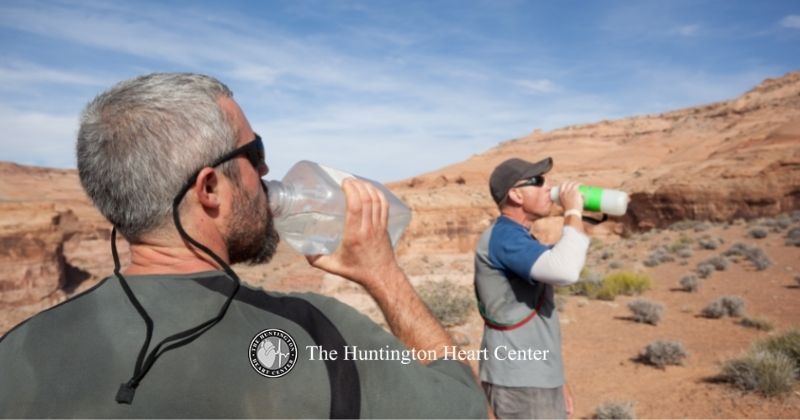Hydration and Your Heart Health
It is no secret that proper hydration is essential to a properly functioning body – your heart is no exception. The human body is composed of 60% water, and the heart is over 70% water. Just that is enough to stress the importance of getting your body the proper amount of water.
Water and heart health
When your body is dehydrated, your blood flow decreases while your heart rate and blood pressure increases. This causes unnecessary strain on your heart that could cause damage down the road, if not properly dealt with early on. Dehydration also results in sodium retention in the blood, which can cause your blood to thicken and your heart to work harder. In addition to the cardiovascular effects of dehydration, it also causes lethargy, irritability, and dry skin, among others. If you are well hydrated, your heart can do its job, pumping blood and oxygen throughout your body and allowing your muscles to work more efficiently. As a result, proper hydration can help as a preventative measure against heart disease as it regulates your blood pressure and, overall, is key to a healthy body.
How can you tell if you’re hydrated?
Your urine! If your urine is a light yellowish or a straw-colored tint, you are generally well-hydrated. If it is dark yellow and cloudy, you should be reaching for that water bottle. Bear in mind that by the time you actually feel thirst, you are likely dehydrated and need water. The best option is to proactively drink enough throughout the day.
How much is enough?
Like most things, the amount of water you should be consuming is dependent on your body type and lifestyle. Talk to your doctor about how much water you should be aiming to drink in a day. Depending on health conditions, weight, age, and physical activity, the amount is going to vary. Trust your body and trust your thirst, there is no reason to deprive yourself. Generally, moderately active adults should drink about 64 fluid ounces of water per day. More active people or outdoor activities in the hot or cold may require more.
Water is the best way to hydrate, so that is what you should depend on most. However, vegetables have a high water composition and can be beneficial to hydration in addition to water. Stay away from highly caffeinated drinks, as they cause your body to lose fluids and don’t pack as much punch. Also, avoid sugary drinks and drinks that contain artificial sweeteners, as they may cause you to crave more sugar and eat more, which can in turn be a detriment to your heart health
The bottom line
Talk to your doctor about how much water you should be consuming on a daily basis. It is an easy way to help your body perform at its best as well as prevent future health conditions. If you are 50 years old and above or struggle with your weight, you should pay special attention to your hydration needs.
If you are curious about what you can do to optimize your heart health, contact us now. Huntington Heart Center is a full-service cardiovascular facility with over 30 years of experience, providing the best quality heart care.








